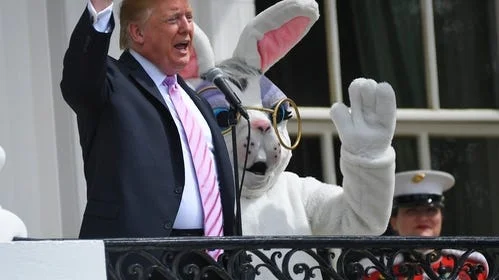
Trump’s Easter Egg Roll Goes Corporate: Sponsors Stir Controversy
The traditional White House Easter Egg Roll, a staple event of springtime in Washington, has taken a controversial turn under President Trump's administration. For the first time in its history, the event, scheduled for April 1, has been opened to corporate sponsorships. This move has sparked a heated debate across the nation, with critics arguing it blurs the lines between public service and commercial interests.
Among the high-profile sponsors are major corporations such as Coca-Cola, Nike, and Disney, each bringing their branding to the iconic South Lawn. The decision, announced by the White House, aims to offset the costs of the event but has led to accusations of selling out a cherished national tradition. Proponents argue that sponsorships are a necessary adaptation in today's economic climate, allowing the event to remain free and accessible to the public.
The Easter Egg Roll, which dates back to 1878, has always been a symbol of non-partisan joy and community. This year's corporate involvement has raised questions about the future of such events and their place in American culture. As families prepare to attend, the atmosphere surrounding the event is charged with both anticipation and apprehension about what this precedent might mean for other public ceremonies.